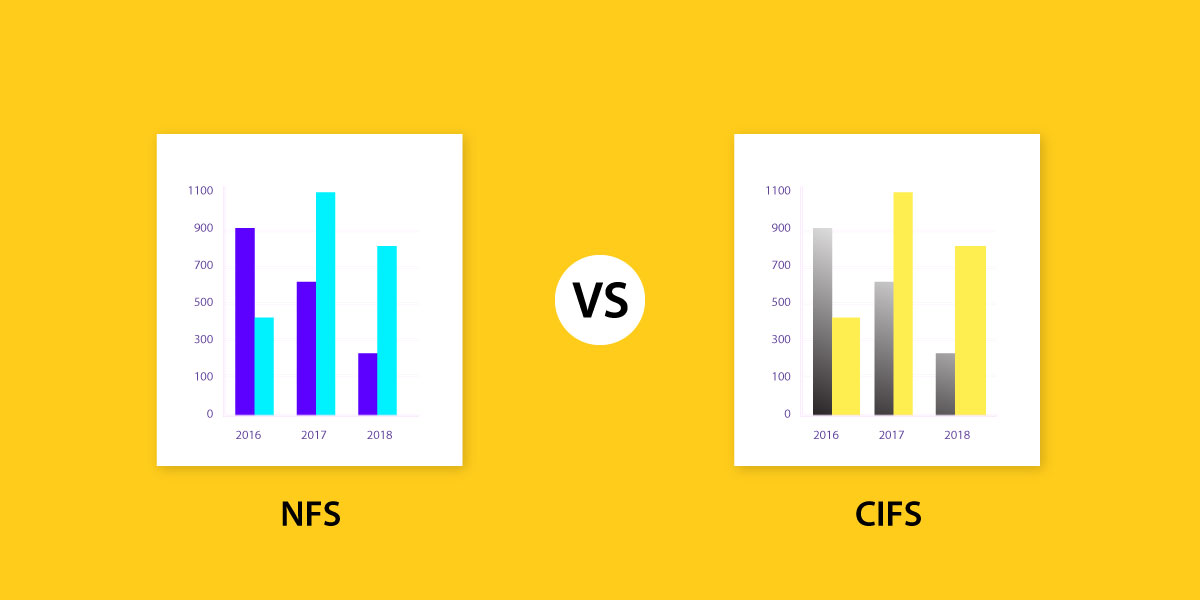Let’s first get to know the basics of both terms.
CIFS full form is Common Internet File System protocol and NFS stands for Network File System. Both of these are a type of network protocol for enabling remote communication.
The CIFS protocol is used for the general purpose of sharing files on a LAN. It enables users to perform file operations such as read, write, delete, and rename over a network. The NFS protocol operates on all types of IP-based networks. It enables data storage and retrieval from multiple devices. NFS is supported by Unix and Linux systems, whereas CIFS is supported by Windows.
Now the question is, which one is better?
Furthermore, let’s compare them and understand which protocol is the best for your system.

NFS vs CIFS: What is the difference?
Now, we will compare both networks with different parameters. Take a look at the below list and find the major differences between NFS and CIFS.
Port Protocols
The CIFS protocol needs the following ports:
For TCP, it uses 139 and 455 ports.
For UDP, it uses 138 and 137 ports.
And, the NFS protocol needs the same 111 ports for both TCP and UDP ports.
Communication Features
In CIFS, it is quite messy. It makes for confusing communication, and it is only best for Window servers. But NFS is much better than CIFS. The communication is clear. It is preferred by both Linux and Unix operators.
Requirement of Sessions
If we look at the session requirement, NFS doesn’t provide any sessions whereas CIFS provides you with a requirement session.
-
Security
CIFS supports advanced security features as compared to NFS. It is more reliable. But NFS is not a reliable protocol. It doesn’t even give you special security features.
-
Scalable
CIFS has fewer scalable features. On the other hand, NFS is more scalable than CIFS.
-
Speed
CIFS gives moderate communication speed, but NFS gives you a high level of communication speed.
-
Implementation
CIFS has a complicated configuration and implementation setup and it is very difficult to find any configuration errors. NFS is quite different. It is simple and easy to configure. It is user-friendly and executes queries at a fast pace.
-
File Naming
The file naming consistency and enabling file characters in the CIFS protocol are dependable. CHARMAP is used in CIFS. In NFS, file naming is not as simple as in CIFS. It is difficult as legacy file names that have certain characters are not valid in the operating system.
-
LDAP Services
CIFS uses the LDAP service to store and access databases. And, NFS uses LDAP services to only view the information.
-
Transportation
CIFS is generally used for direct hosting. NetBIOS is a dependent transportation feature over TCP and IP protocols. NFS, however, is a transport-dependent protocol. It is the best at providing high-speed communication.
Conclusion
While studying the aforementioned points, we noticed that many of them differed from one another. However, when it comes to winning the CIFS vs NFS battle, it is simple to choose NFS. It must be a more efficient and effective file transfer protocol. In the end, both have their pros and cons. All are dependent on your suite requirements. We hope you gain some information. See you again.
